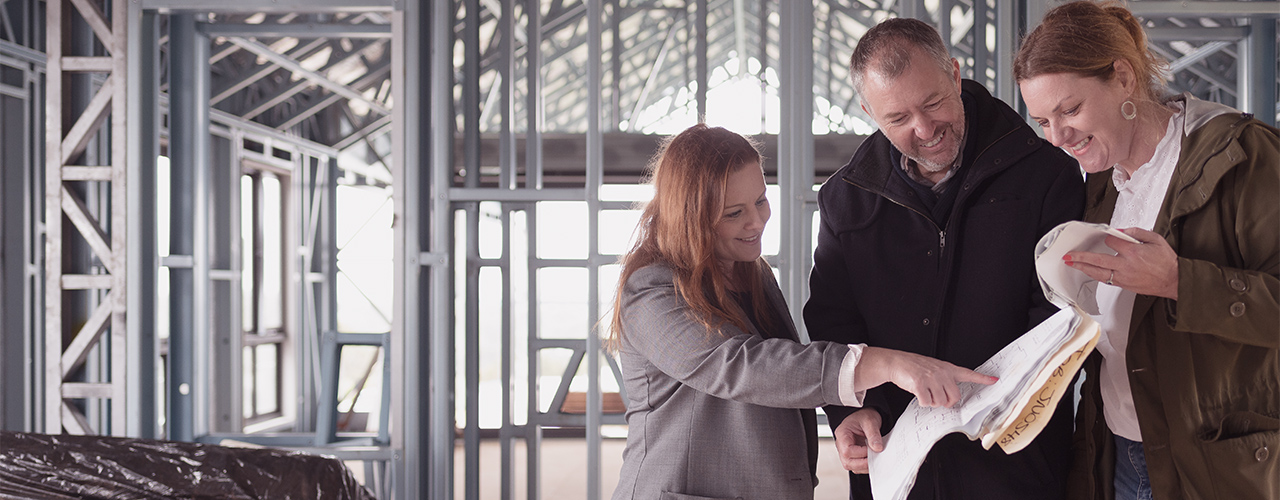As we go through life, the things we want and need in a home can change. You might have outgrown your first home, expanded or blended your family, or simply decided it’s time for a fresh start. But when the time comes to change it up, should you renovate your existing home, or relocate to a new one? Let’s weigh up your options.
Relocating: the pros and cons
When it comes to relocating, there are significant benefits to be had. Firstly, you can go and look for a property that meets your needs, rather than having to work with a property that’s no longer a fit. You’ll have more freedom over location, and you might be able to leverage equity in your current home to buy a property with greater growth potential. Plus, while moving can be stressful, it can be done fairly quickly with the help of removalists or friends and family.
However, relocating does come with significant costs. You’ll need to pay a real estate agent to market and sell your property, as well as stamp duty on your new property and other costs like a solicitor/conveyancer. . On top of that, you’ll be buying back into the market you’ve sold out of. This means that even if you’ve got a great price on your old property, you may still be buying in like-for-like market conditions, which may limit what you can afford.
If you sell your property prior to purchasing a new one, you may also need to consider the cost of renting, or living with family or friends in the interim.
Renovating: the pros and cons
Renovating has become increasingly popular in recent years, as savvy Aussies look to add value to the homes they’ve already got. Renovating will cost you money upfront, even if you’re doing a lot of it yourself, but your upgrades can add more value to your property in the long run. You already know your property, and you can customise your renovation project to create a home that has exactly what you want.
Unlike relocating, renovating means you won’t have to pay real estate agent fees to sell your property or stamp duty on your new property saving you tens of thousands of dollars.
However, renovating has downsides too. Renovation budgets can blow out, especially with the rising cost of building materials and trades. When doing significant renovations, you risk overcapitalising. This happens when the renovation costs more than the value you’ve added.
Not only can your budget get off track, but your timeline can too. This can leave you stuck living in a mid-reno property, costly rental accommodation or staying with friends and family for longer than you’d like.
How to decide which is right for you
Experts often say that your number one consideration should be where you want to live. If your current location isn’t right for you, that’s a significant reason for relocating. But, if you’re happy where you are and you think a renovation could transform your home into what you need, staying put might be the better option for you.
Things to consider
-
Budget and financials
Consider how you plan to fund a renovation project or the cost of relocation. Will you be using cash savings, taking out a loan, or using equity? The amount of finance you have available can play a role in your decision. -
Timeline and future goals
It’s worth considering whether a renovation would give you “longevity” in your property, or whether it’s just a short-term fix that’ll still leave you wanting to move in a few years. -
Size and scale of renovation
Smaller renovations may mean you can live in the property while the works are done and take on less risk when it comes to budget. However, larger renovations come with larger risks, and you might have to live elsewhere during the build. This can add on cost and disruption to your lifestyle. -
Plans and permits
Some renovations will require extensive planning permission, and you may face pushback from neighbours or the council. -
What's actually possible
Not everything is possible for every property – particularly where space is concerned. Unless you are completing an extension as part of your renovation, many renovations only enhance the current aesthetic rather than creating more usable space.
Ultimately, the decision whether to renovate or relocate is a personal one. We recommend running the numbers and doing your research on both scenarios, identifying what the best option could look be on both sides. Then, you can decide what path to take.
Need more information? Chat to our lending team for any other questions you might have.





